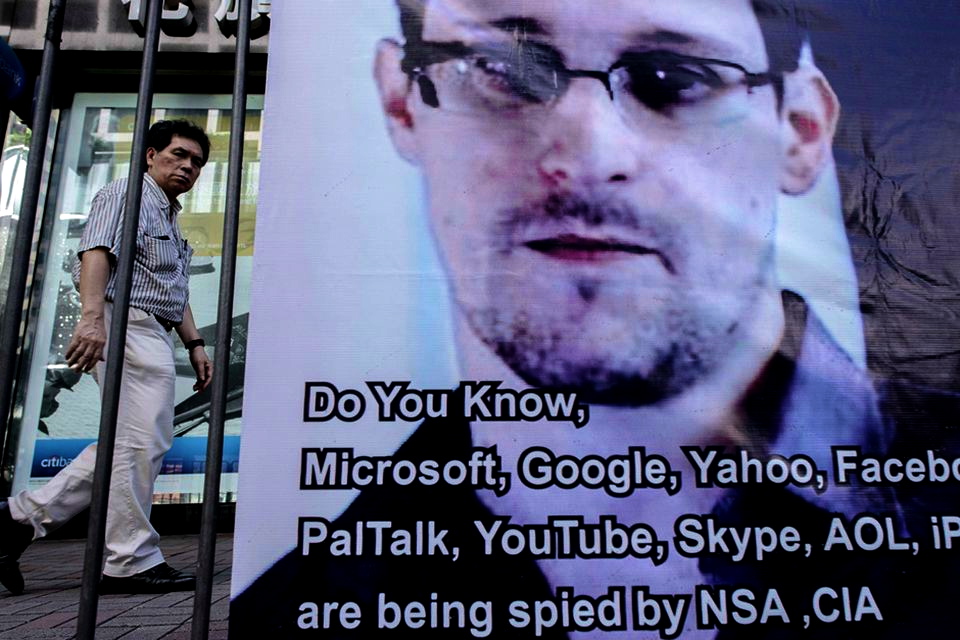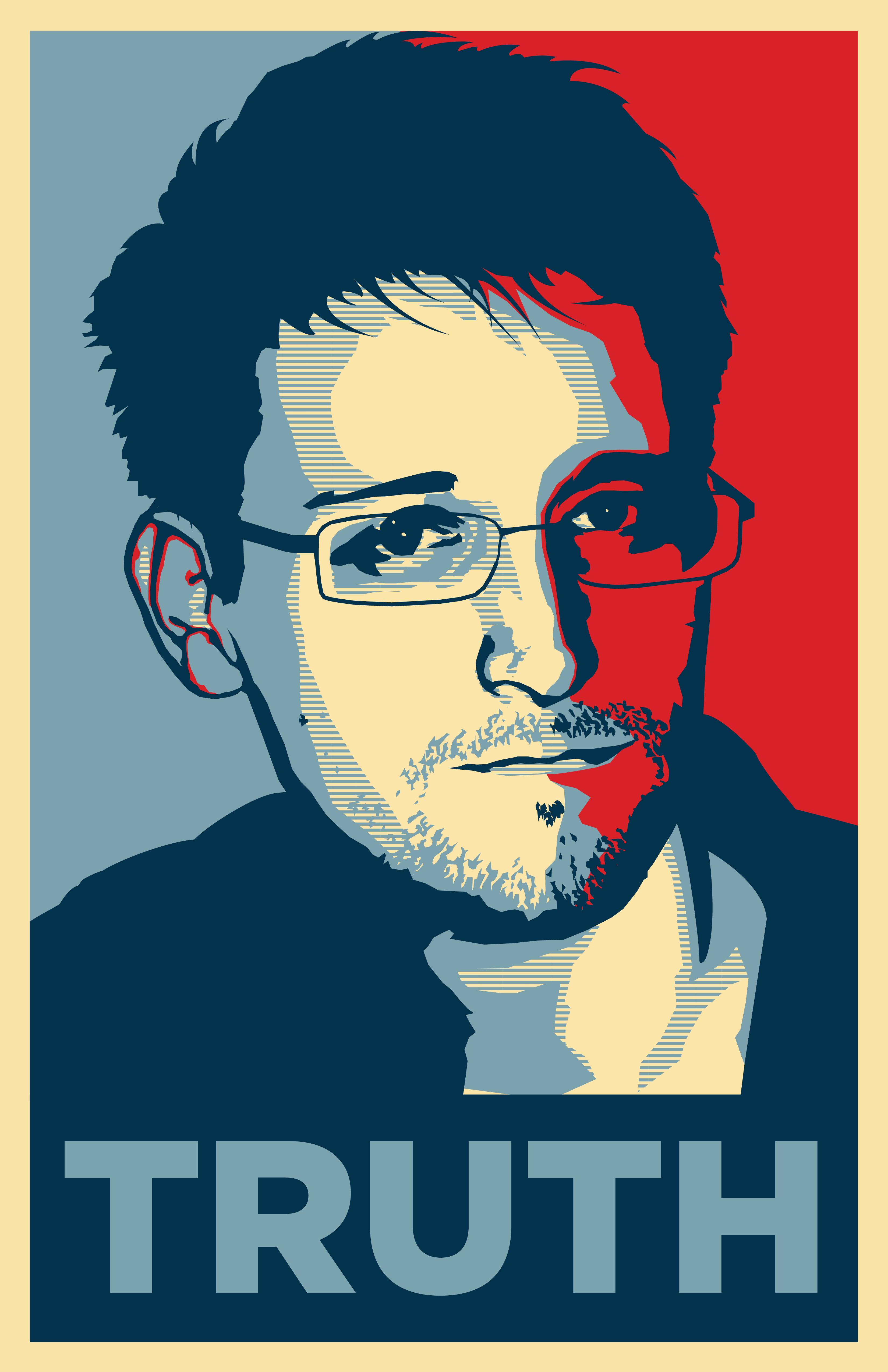
The Independent on Friday morning published an article - which it repeatedly claims comes from "documents obtained from the NSA by Edward Snowden" - disclosing that "Britain runs a secret Internet-monitoring station in the Middle East to intercept and process vast quantities of emails, telephone calls and web traffic on behalf of Western intelligence agencies."
This is the first time the Independent has published any revelations purportedly from the NSA documents, and it's the type of disclosure which journalists working directly with NSA whistleblower Edward Snowden have thus far avoided.
That leads to the obvious question: who is the source for this disclosure? Snowden on Friday said he wants it to be clear that he was not the source for the Independent, stating:
"I have never spoken with, worked with, or provided any journalistic materials to the Independent. The journalists I have worked with have, at my request, been judicious and careful in ensuring that the only things disclosed are what the public should know but that does not place any person in danger. People at all levels of society up to and including the President of the United States have recognized the contribution of these careful disclosures to a necessary public debate, and we are proud of this record. "It appears that the UK government is now seeking to create an appearance that the Guardian and Washington Post's disclosures are harmful, and they are doing so by intentionally leaking harmful information to The Independent and attributing it to others. The U.K. government should explain the reasoning behind this decision to disclose information that, were it released by a private citizen, they would argue is a criminal act."
In other words: right as there is a major scandal over the U.K.'s abusive and lawless exploitation of its Terrorism Act - with public opinion against the use of the Terrorism law to detain David Miranda - and right as the UK government is trying to tell a court that there are serious dangers to the public safety from these documents, there suddenly appears exactly the type of disclosure the UK government wants but that has never happened before.
That is why Snowden is making clear: despite the Independent's attempt to make it appears that it is so, he is not their source for that disclosure. Who, then, is?
The U.S. government itself has constantly used this tactic: aggressively targeting those who disclose embarrassing or incriminating information about the government in the name of protecting the sanctity of classified information, while simultaneously leaking classified information prolifically when doing so advances their political interests.
One other matter about the Independent article: it strongly suggests that there is some agreement in place to restrict the Guardian's ongoing reporting about the NSA documents. Speaking for myself, let me make one thing clear: I'm not aware of, nor subject to, any agreement that imposes any limitations of any kind on the reporting that I am doing on these documents. I would never agree to any such limitations. As I've made repeatedly clear, bullying tactics of the kind we saw last week will not deter my reporting or the reporting of those I'm working with in any way. I'm working hard on numerous new and significant NSA stories and intend to publish them the moment they are ready.
For those in the media and elsewhere arguing that the possession and transport of classified information is a crime: does that mean you believe that not only Daniel Ellsberg committed a felony, but also the New York Times reporters and editors did when they received, possessed, copied, transported and published the thousands of pages of top-secret documents known as the Pentagon Papers?
Do you also believe the Washington Post committed felonies when receiving and then publishing top secret information that the Bush administration was maintaining a network for CIA black sites around the world, or when the New York Times revealed in 2005 the top secret program whereby the NSA had created a warrantlesss eavesdropping program aimed at U.S. citizens?
Or is this some newly created standard of criminality that applies only to our NSA reporting? Do media figures who are advocating that possessing or transmitting classified information is a crime really not comprehend the precedent they are setting for investigative journalism?
In response, the Independent's Oliver Wright tweeted the following:
"For the record: The Independent was not leaked or 'duped' into publishing today's front page story by the Government."
Leaving aside the fact that the Independent article quotes an anonymous "senior Whitehall source," nobody said they were "duped" into publishing anything. The question is: who provided them this document or the information in it? It clearly did not come from Snowden or any of the journalists with whom he has directly worked. The Independent provided no source information whatsoever for their rather significant disclosure of top secret information. Did they see any such documents, and if so, who, generally, provided it to them? I don't mean, obviously, that they should identify their specific source, but at least some information about their basis for these claims, given how significant they are, would be warranted. One would think that they would not have published something like this without either seeing the documents or getting confirmation from someone who has: the class of people who qualify is very small, and includes, most prominently and obviously, the U.K. government itself.
In other news Sunday, Adam Gabbatt reported in the Guardian that NSA analysts have admitted the agency "willfully violated" surveillance systems:
The National Security Agency has admitted that some of its analysts deliberately abused its surveillance systems, with one analyst disciplined for using NSA resources to track a former spouse.
The agency said Friday it had found "very rare instances of willful violations of NSA's authorities" as officials briefed reporters that various agents had used the NSA's controversial data monitoring capabilities to spy on love interests.
"NSA takes very seriously allegations of misconduct, and co-operates fully with any investigations – responding as appropriate," the NSA said in a statement. "NSA has zero tolerance for willful violations of the agency's authorities."
It said none of the abuses involved violations of the Foreign Intelligence Surveillance Act or the Patriot Act – violations of which have been highlighted by the Guardian based on documents leaked by the whistleblower Edward Snowden. Instead, the abuses were related to misuse of the 1981 Executive Order 12333, which governs how U.S. intelligence operations are used.
The Bloomberg news agency reported that anonymous U.S. officials had said there had been "a few cases" where NSA officials or contractors had used agency surveillance tools or data to spy on people in which they had romantic interests.
The Wall Street Journal also said anonymous officials had admitted that NSA analysts had abused their positions to monitor love interests. It said the practice is infrequent but "common enough to garner its own spycraft label: LOVEINT". The newspaper said that NSA employees or contractors found to have committed LOVEINT violations had been disciplined in each case.
In its official statement, the NSA did not directly address the issue of data monitoring for amorous purposes. The agency admitted that abuses had taken place over the past decade but did not specify what the nature of those abuses were.
The Senate intelligence committee was briefed this week on the "wilful violations" by the NSA's inspector general's office. Senator Dianne Feinstein, who chairs the committee, issued a statement on the abuses.
"The committee has learned that in isolated cases over the past decade, a very small number of NSA personnel have violated NSA procedures – in roughly one case per year," Feinstein said.
She said the incidents "in most instances did not involve an American's information".
"I have been informed by NSA that disciplinary action has been taken, and I am reviewing each of these incidents in detail."
Last week the NSA's director of compliance, John DeLong, said abuses "are taken very seriously."
"When we make mistakes, we detect, we correct and we report," he said.
Obama administration officials and intelligence overseers in Congress have described the FISA and Patriot Act violations as inadvertent. The NSA this week declassified a secret FISA court ruling from 2011 that revealed the agency had inadvertently scooped up, over a three-year period, as many as 56,000 emails of Americans not connected to terrorism.
3 WAYS TO SHOW YOUR SUPPORT
- Log in to post comments














